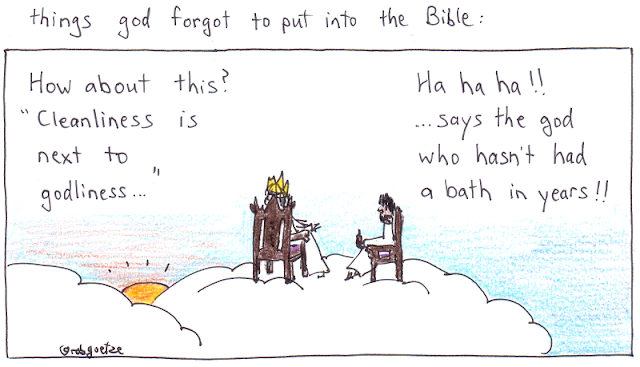Until something shakes them up a bit:
There is a photo floating around Twitter depicting God the Father as a man with a beard.— Broderick Greer (@BroderickGreer) May 27, 2016
It might seem like an innocuous tweet, but Broderick Greer is someone I pay attention to. And so after reading it, I thought to myself, oh, while I know that God is not a man with a beard, and while I have even depicted Jesus as a queer black female, I do sometimes depict God as a man with a beard.













